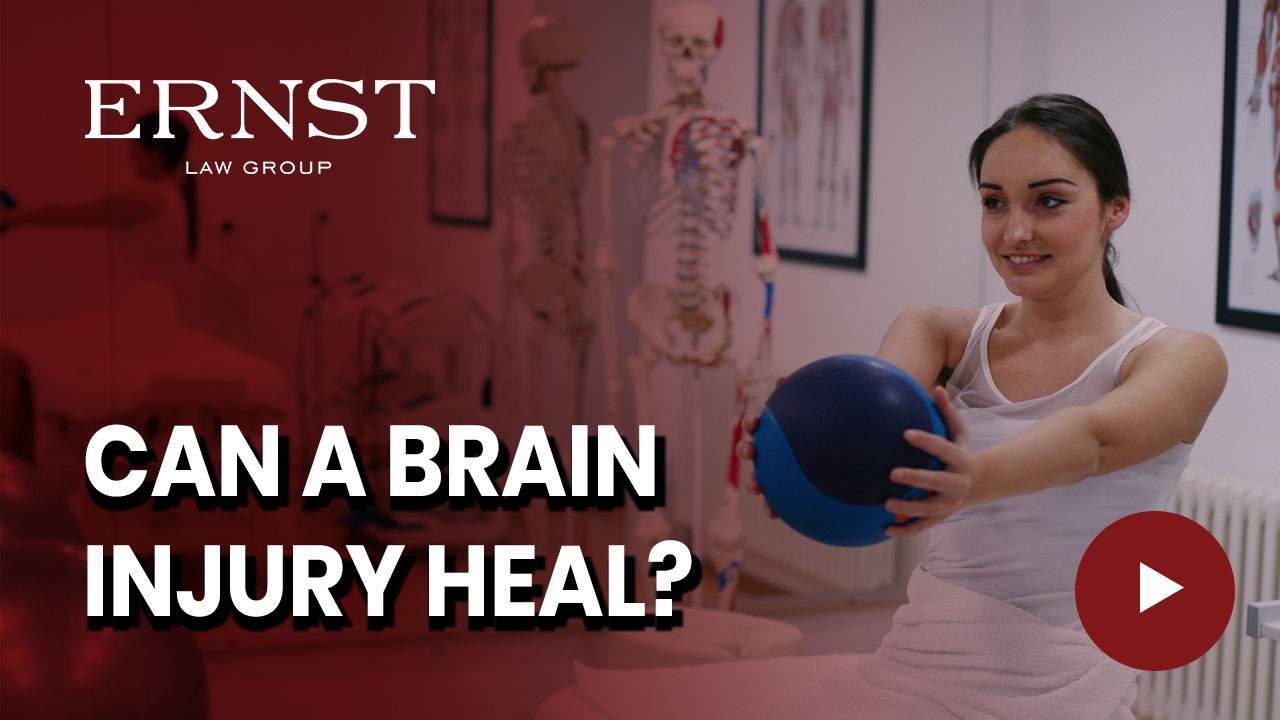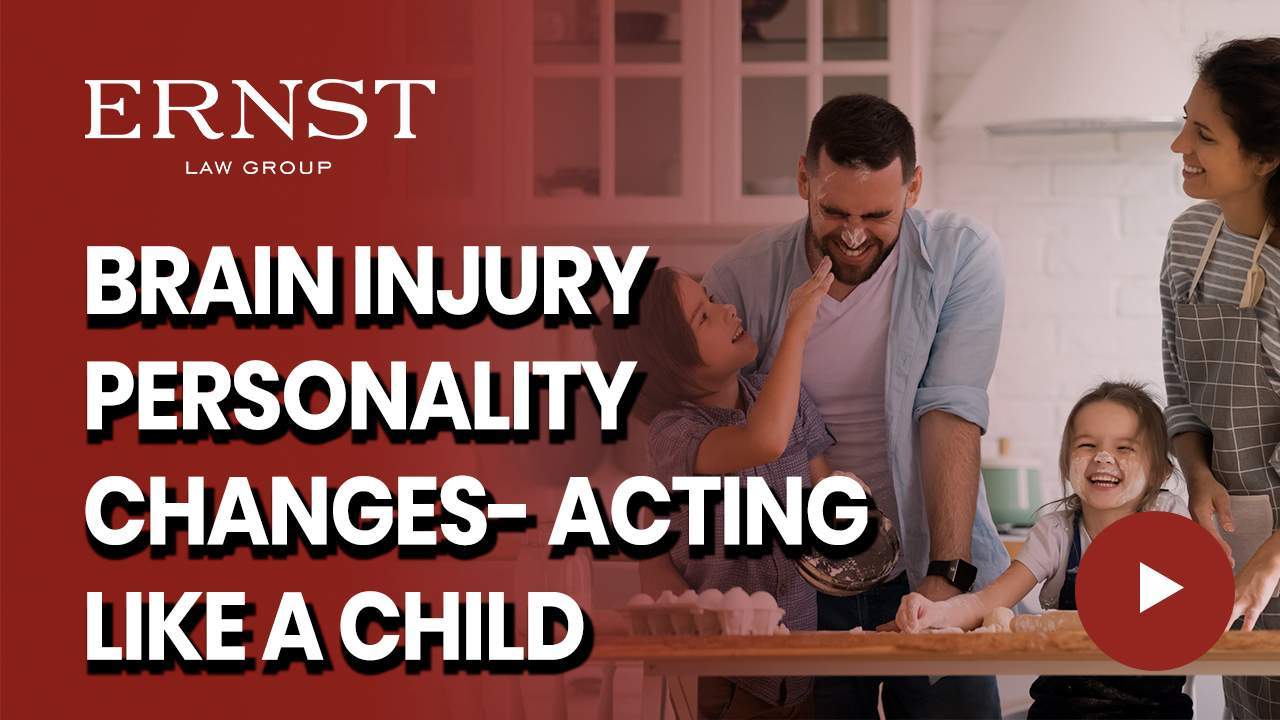Transcript:
I wanted to do a video on myths about traumatic brain injury. Being a lawyer that does this stuff all the time with clients, it’s amazing how often people come to me, either doctors or victims of traumatic brain injury and say, “Hey, I’ve heard this.” And it’s just flat incorrect. So I want to do a video, just address five myths that are absolutely incorrect when it comes to traumatic brain injuries, and set the record straight.
First off, number one, can you have a traumatic brain injury if you didn’t hit your head? Yes, you can. The reason is anytime the brain is moved around enough in the skull … If you get violently hit in the chest, you can actually have a traumatic brain injury because your head whipped back and forth so quickly, the brain will actually impact the front and back of your skull, bruised the brain and caused the traumatic brain injury. So that’s myth number one is you can have a traumatic brain injury without a direct head strike.
Myth number two, if there’s no loss of consciousness, you can’t have a traumatic brain injury. I just did a double negative, but basically, if you ask somebody, “Did you lose consciousness?” Most of the time, if you lose consciousness, you don’t know if you lost consciousness because you can’t remember anyway. Whether or not you were there or not, how do you remember something if were unconscious? So people and medical professionals or people at the ambulance or doctors will say, “Did you lose consciousness?” And if your loved one says no, that doesn’t mean they necessarily did not lose consciousness. It might mean that they don’t remember. The other thing is sometimes you cannot lose consciousness and still suffer a traumatic brain injury.
Number three is when a doctor tells you that it’s been a year since the accident or a year since the traumatic brain injury occurred, you’re never going to get better than this. You’ve plateaued. If they start using the phrase plateau, “After 18 months, this is as good as you’re going to get. You’ve plateaued in your recovery.” That is no longer good science. It is old. It is old studies that have given us that plateau language. It’s almost from the Vietnam war era. What has really been the new school research is what’s called brain plasticity, which is your brain is always learning and changing. It’s why sometimes people who have Alzheimer’s never really show signs of it. And they only in the after autopsy, they notice that they have Alzheimer’s. It’s because they were learning brain connections so quickly that they overcame certain parts of their brain slowly not working anymore.
It’s just like that with a traumatic brain injury. Certain things won’t work, but if you continue to learn new processes, you push yourself, you have to learn new ways to go about the things that you were doing before, a lot of the times you can actually have a very serious brain injury and recover completely from it. As long as you are pushing forward with continuing your treatment and continuing to learn new ways to address the issues that you had. It’s called brain plasticity. There’s an enormous amount about research out there. If you Google it, there’s tons of books on brain plasticity. It is what is the new way to approach brain injuries. So if somebody tries talking about plateaus, I don’t want to say rule a doctor out, but let’s just say that’s old science. So you really got to focus on what is the best way to move forward with some of the brain injury treatment that you can do.
That’s one, two, and three. Additional brain injury myths, I wrote down a couple and I want to look over here and see. So this is a point that I want to address, and it’s kind of serious. Someone who’s suffered a traumatic brain injury, there’s a myth that they never think about suicide. Somebody who suffered a traumatic brain injury actually has a much higher percentage of worrying or suicidal ideation, just because of so much in their life has changed so quickly, physically, mentally, cognitively. Their relationships, their family often change that suicide is something that becomes much more likely, and you need to be able to provide the support network to deal with. Someone who suffers a brain injury needs to know that they have some people that if they’re starting to have some of the darker thoughts, you tell them ahead of time of, “Hey, if you’re ever starting to worry about this or that, please talk to me.”
We actually had a client come to us after having that conversation six months earlier, say, “I’m having these thoughts. You told me to come to you. I’m coming to you. What do I do about it?” And we immediately put them in touch with some serious professionals that were really able to help address some of the concerns that he had. And he actually made some really remarkable recovery in a couple of areas and he never really went down that route again. So that’s something that really needs to be considered as just because you suffered traumatic brain injury, doesn’t mean you can’t have some type of suicidal thoughts.
The other thing that needs to be addressed is they talk about it with football players, traumatic brain injury, impact again and again and again. It doesn’t need to be a large number of impacts to suffer a significant brain injury. It can be one impact that’s significant enough to cause a traumatic brain injury. And sometimes, even a slight impact that shouldn’t really be as serious as it seems to be, if it has ongoing effects, it can be a significant brain injury.
And so those are the five myths I wanted to go through and just address head on and say, “Hey, if you’ve heard these things … ” We’ve seen enough clients and patients over the years that had really … I wanted to address them because we hear them again and again and again. And I’d like you to understand, as a professional who works with these clients day in, day out, these are myths that are not accurate.









